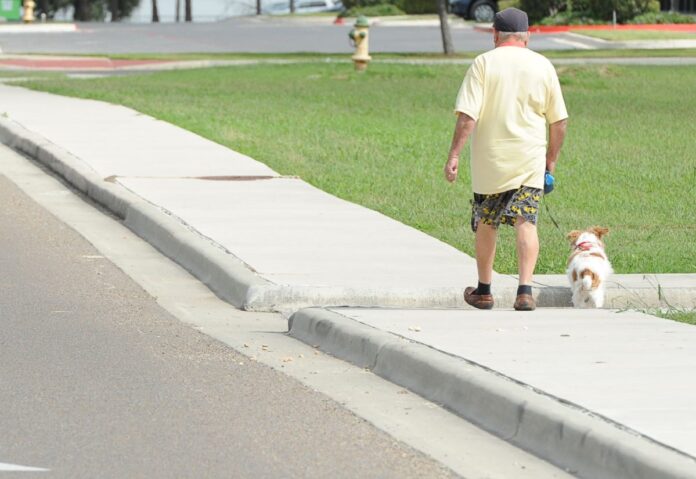BROWNSVILLE — The Texas House of Representatives is discussing a bill that would make restraining a dog in inhumane living conditions unlawful.
State Rep. Sarah Davis, R-Houston, filed House Bill 1156 that states a dog owner may not leave a dog outside and unattended by the use of a restraint unless the owner provides the dog access to adequate shelter, an area where the dog can avoid standing water, shade from direct sunlight and potable water.
“I have filed House Bill 1156 to curb cruel and inhumane practices by dog owners,” Davis said.
“My bill does not prohibit a person from tethering their dog. It simply requires an owner that chooses to tether their dog to do so humanely.”
According to the bill, adequate shelter means a structure that protects the dog from rain, hail, sleet, snow and subfreezing temperatures and is large enough for the dog to stand, sit, turn around and lie down in a normal matter.
“This includes allowing them access to food, water and shelter from extreme conditions. HB 1156 would amend the current statute, which is confusing for both dog owners attempting to comply and peace officers attempting to uphold the law,” Davis said.
There are some exceptions to HB 1156 that include dogs being restrained in campgrounds, recreational areas, herding cattle or livestock or cultivating agricultural products.
Brownsville Animal Defense President Tessie Sarmiento said she supports the passage of HB 1156.
“Animals shouldn’t be restrained. They deserve to be free and safe within the boundaries of the property of people, but they don’t need to be restrained with chains and ropes and things of that sort, they deserve to be free,” Sarmiento said.
Sarmiento said BAD has saved several dogs that had their collars embedded in them from having been tethered.
“It’s pathetic. It’s nauseating when you see that the collar has been embedded into the flesh of the dog simply because people tether them. They don’t take care of them, they just tie them up,” Sarmiento said. “Occasionally they get fed, occasionally they get a fresh pail of water; it’s pathetic.”
Ruben O’Bell, chief of staff for state Rep. Eddie Lucio III, D-Brownsville, said Lucio’s office always has been a strong supporter for animal welfare legislation. He said Lucio would consider voting for HB 1156.
“In past sessions, Chairman Lucio has filed numerous bills, including the Cockfighting Bill and the Shark Fin Bill, which passed both legislative chambers and became law,” O’Bell said.
Lucio filed a similar bill in November 2016, HB 162, relating to community supervision for defendants convicted of certain criminal offenses against animals.
Currently, the City of Brownsville has a similar ordinance, Article 3 Sec. 10-1061(b), that states, “If any animal is restrained by a chain, leash or similar restraint, it shall be designed and placed to prevent choking or strangulation. Such chain or restraint should not be directly attached to the animal’s neck but instead attached to a properly fitted collar constructed of nylon, leather or similar material specifically designed to be used for a dog.”
Any violation of city ordinances regarding animals is a Class C Misdemeanor and punishable by a fine up to $500.
Brownsville police spokesman J.J. Trevino said the city’s ordinance also requires chains or restraints for the dog to be at least 10 feet long and owners to maintain a clean and healthy living shelter.
“A lot of people don’t know that you can’t chain up your dog with just a chain,” Trevino said. “What these animal control officers try to do is try to educate (the dog owner). The idea is not just fine people, (but to) educate people that whatever it is that they’re doing is not correct and this is the way to do it. If (animal control) keeps getting complaints, then they’ll obviously go out there and fine them.”
If someone was in violation of HB 1156, it would be a Class C Misdemeanor. If the same violation were to happen again, according to the bill, it would turn into a Class B Misdemeanor, which is a fine up to $2,000 and/or 180 days in county jail.
If approved, the bill would take effect Sept. 1.




